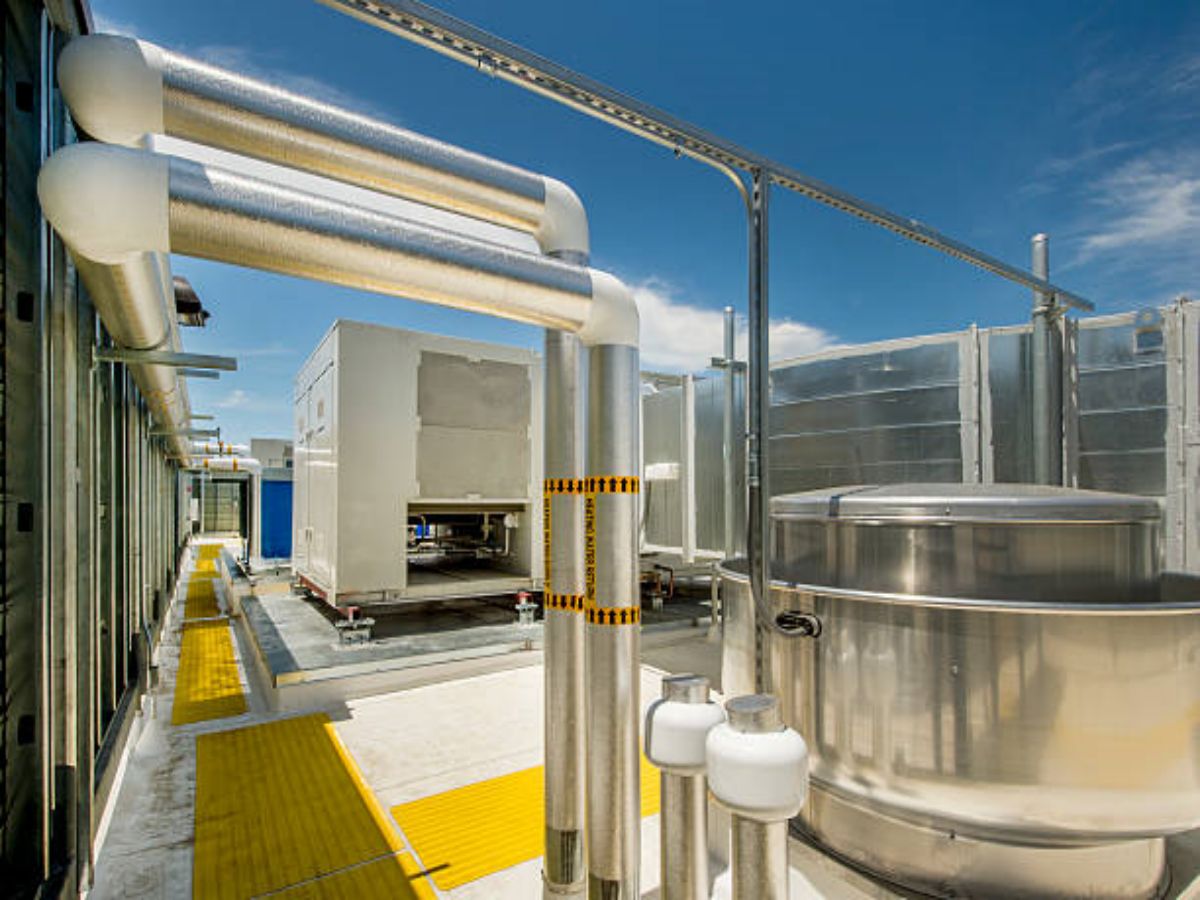Introduction: Understanding the small air cooled chiller
A small air cooled chiller is a compact and efficient cooling system that is widely used in various applications. Whether in commercial buildings, industrial facilities, or even residential spaces, these chillers offer a reliable and cost-effective solution for cooling needs.
The Working Principle of a Small Air Cooled Chiller
Small air cooled chillers operate on the principle of refrigeration, which involves the transfer of heat from one medium to another using a refrigerant. The chiller consists of several key components, including a compressor, an evaporator, a condenser, and an expansion valve.
Advantages of Small Air Cooled Chillers
Small air cooled chillers offer numerous advantages over other cooling systems. These benefits include:
- Compact Size: Small air cooled chillers are designed to be space-saving, making them ideal for applications with limited space.
- Energy Efficiency: These chillers are designed to provide efficient cooling while consuming minimal energy, resulting in cost savings.
- Easy Installation: The compact size and modular design of small air cooled chillers make them easy to install and integrate into existing systems.
- Low Maintenance: These chillers require minimal maintenance, reducing downtime and overall operating costs.
- Flexibility: Small air cooled chillers can be used for both indoor and outdoor applications, offering flexibility in installation.
Applications of Small Air Cooled Chillers
Small air cooled chillers find applications in various industries and settings. Some common applications include:
- Commercial Buildings: Small air cooled chillers are commonly used in office buildings, hotels, and shopping malls to provide cooling for air conditioning systems.
- Food and Beverage Industry: These chillers are used in food processing facilities, breweries, and wineries to maintain optimal temperatures during production and storage.
- Plastic Industry: Small air cooled chillers are essential for cooling plastic injection molding machines, ensuring consistent quality and reducing cycle times.
- Medical Facilities: These chillers are used in hospitals, laboratories, and research facilities to provide cooling for medical equipment and maintain stable temperatures.
- Data Centers: Small air cooled chillers play a vital role in cooling data centers, preventing overheating and ensuring the efficient operation of servers and networking equipment.
Factors to Consider When Choosing a Small Air Cooled Chiller
When selecting a small air cooled chiller for a specific application, several factors should be taken into consideration. These factors include:
- Cooling Capacity: Determine the required cooling capacity based on the specific cooling load of the application.
- Energy Efficiency: Look for chillers with high energy efficiency ratings to reduce operating costs.
- Noise Level: Consider the noise level of the chiller, especially in applications where noise is a concern.
- Reliability: Choose a chiller from a reputable manufacturer known for producing reliable and durable equipment.
- Installation and Maintenance: Consider the ease of installation and maintenance requirements of the chiller.
Common Features of Small Air Cooled Chillers
Small air cooled chillers often come equipped with various features to enhance their performance and efficiency. Some common features include:
- Microprocessor-based Controls: These controls allow for precise temperature regulation and system monitoring.
- High-Quality Compressors: Efficient and durable compressors ensure reliable operation and reduce energy consumption.
- Advanced Heat Exchangers: Heat exchangers with enhanced surface area promote efficient heat transfer.
- Variable Speed Fans: Fans with variable speed settings help optimize energy usage and reduce noise levels.
- Intelligent Defrosting Systems: Defrosting systems prevent ice buildup on the evaporator coils, ensuring continuous operation.
Maintenance and Care for Small Air Cooled Chillers
To ensure the optimal performance and longevity of a small air cooled chiller, regular maintenance is essential. Some maintenance tasks include:
- Cleaning the Condenser and Evaporator Coils: Regularly clean these coils to remove dirt and debris that can hinder heat transfer.
- Checking Refrigerant Levels: Ensure that the refrigerant levels are within the recommended range to maintain efficient operation.
- Inspecting Electrical Connections: Regularly inspect and tighten electrical connections to prevent loose connections and potential damage.
- Replacing Air Filters: Clean or replace air filters regularly to maintain good air quality and prevent strain on the chiller.
- Professional Maintenance: Schedule regular professional maintenance to identify and address any potential issues before they escalate.
The Future of Small Air Cooled Chillers
The demand for small air cooled chillers is expected to continue to grow in the coming years. With advancements in technology and increasing focus on energy efficiency, these chillers will become even more compact, efficient, and environmentally friendly. They will play a vital role in meeting the cooling needs of various industries while minimizing energy consumption and reducing the carbon footprint.
